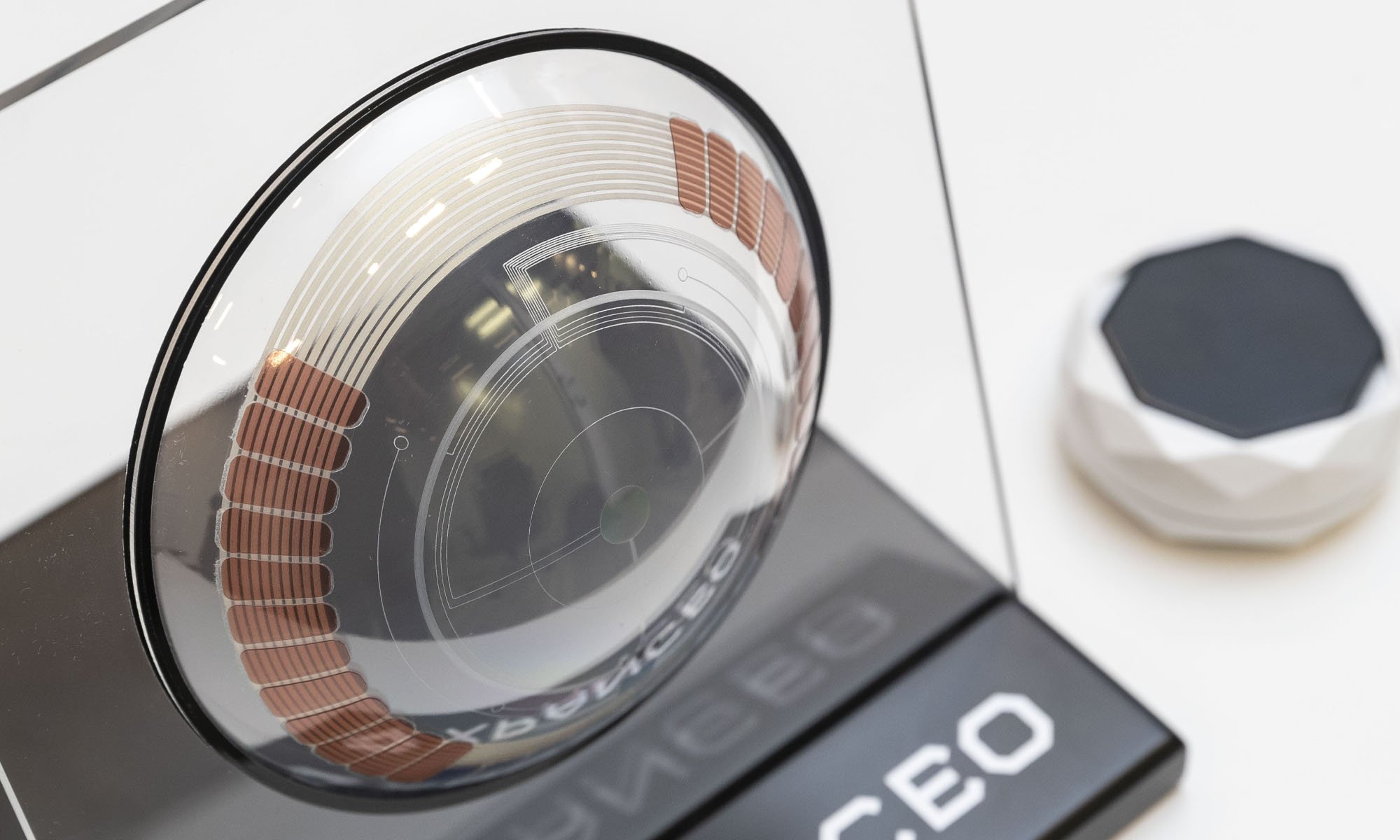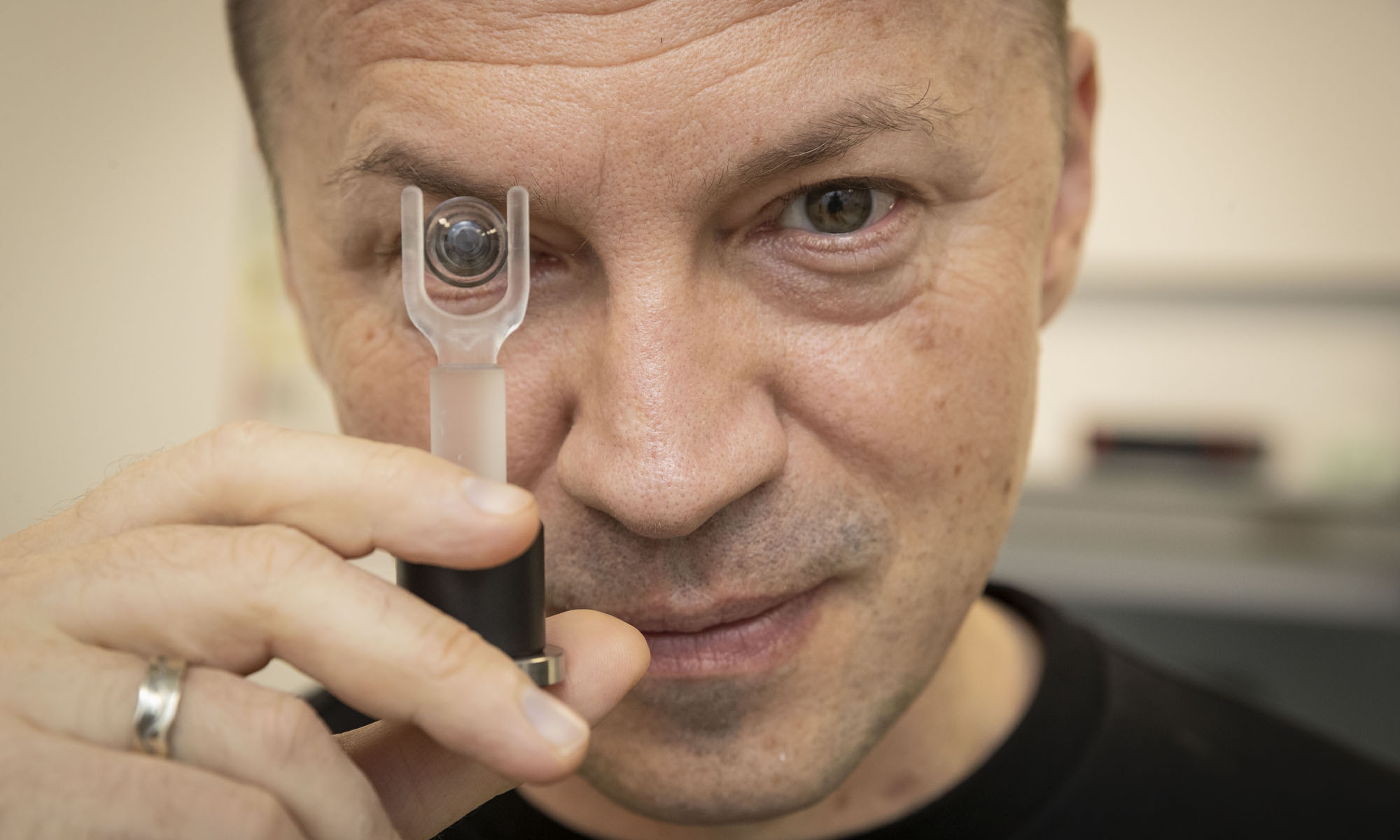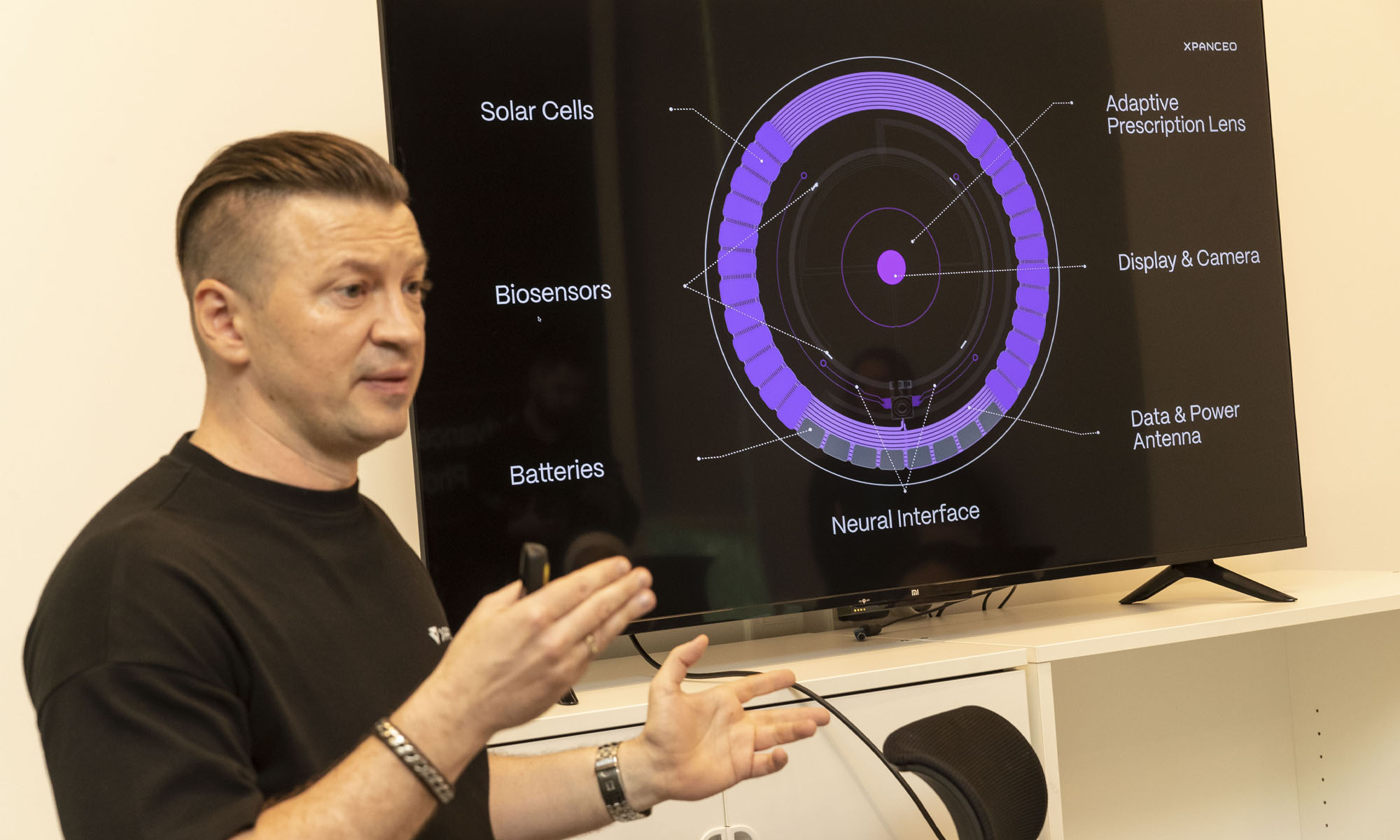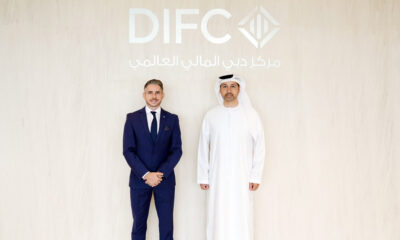News
Dubai Startup Creates Iron Man-Style Smart Contact Lens
XPANCEO’s futuristic eyewear can be controlled using voice, gestures, glances, and “probably later, your mind”, according to the company’s founder.

Dubai-based tech startup XPANCEO has revealed prototypes of its smart contact lens system, which aims to mimic the technology used by Tony Stark in the famous Marvel Iron Man and Avengers movies.
After a seed funding round this October, the company has already raised $40 million and plans to put the device on the market by 2027 if human trials are successful.

Founder Roman Axelrod explained the motivation behind the project, saying, “Now, we have our laptops for the office, smartphones for daily activities, and smartwatches for training … a real computer of the future is an ecosystem of software. Think about it as a Tony Stark computer”.

XPANCEO has built three prototypes, offering an “infinite” extended reality view where tasks from documents, meetings, social media, and gaming will be shown in the user’s field of view and visible only to the wearer.
The lenses are powered by artificial intelligence and machine learning and will also include night vision, voice, gesture, and glance control. Mr. Axelrod even believes that later versions will be controlled by the user’s mind. The company is also developing a charging case similar to those used by wireless earbuds.
Also Read: A Guide To Digital Payment Methods In The Middle East
Ultimately, XPANCEO aims to replace all the devices consumers currently use with this hyper-miniaturized gadget. The company has yet to decide on a price for its smart contact lens, but “it has to be no more than an expensive smartphone”, Mr. Axelrod explained.
That would imply a four-figure sum in US dollar terms: for reference, the most expensive version of the iPhone 15 Pro Max is priced at $1,599.
News
Rabbit Expands Hyperlocal Delivery Service In Saudi Arabia
The e-commerce startup is aiming to tap into the Kingdom’s underdeveloped e-grocery sector with a tech-first, locally rooted strategy.

Rabbit, an Egyptian-born hyperlocal e-commerce startup, is expanding into the Saudi Arabian market, setting its sights on delivering 20 million items across major cities by 2026.
The company, founded in 2021, is already operational in the Kingdom, with its regional headquarters now open in Riyadh and an established network of strategically located fulfillment centers — commonly known as “dark stores” — across the capital.
The timing is strategic: Saudi Arabia’s online grocery transactions currently sit at 1.3%, notably behind the UAE (5.3%) and the United States (4.8%). With the Kingdom’s food and grocery market estimated at $60 billion, even a modest increase in online adoption could create a multi-billion-dollar opportunity.
Rabbit also sees a clear alignment between its business goals and Saudi Arabia’s Vision 2030, which aims to boost retail sector innovation, support small and medium-sized enterprises, attract foreign investment, and develop a robust digital economy.
The company’s e-commerce model is based on speed and efficiency. Delivery of anything from groceries and snacks to cosmetics and household staples is promised in 20 minutes or less, facilitated by a tightly optimized logistics system — a crucial component in a sector where profit margins and delivery expectations are razor-thin.
Despite the challenges, Rabbit has already found its stride in Egypt. In just over three years, the app has been used by 1.4 million customers to deliver more than 40 million items. Revenue has surged, growing more than eightfold in the past two years alone.
Also Read: Top E-Commerce Websites In The Middle East In 2025
CEO and Co-Founder Ahmad Yousry commented: “We are delighted to announce Rabbit’s expansion into the Kingdom. We pride ourselves on being a hyperlocal company, bringing our bleeding-edge tech and experience to transform the grocery shopping experience for Saudi households, and delivering the best products – especially local favorites, in just 20 minutes”.
The company’s growth strategy avoids the pitfalls of over-reliance on aggressive discounting. Instead, Rabbit leans on operational efficiency, customer retention, and smart scaling. The approach is paying off, having already attracted major investment from the likes of Lorax Capital Partners, Global Ventures, Raed Ventures, and Beltone Venture Capital, alongside earlier investors such as Global Founders Capital, Goodwater Capital, and Hub71.























